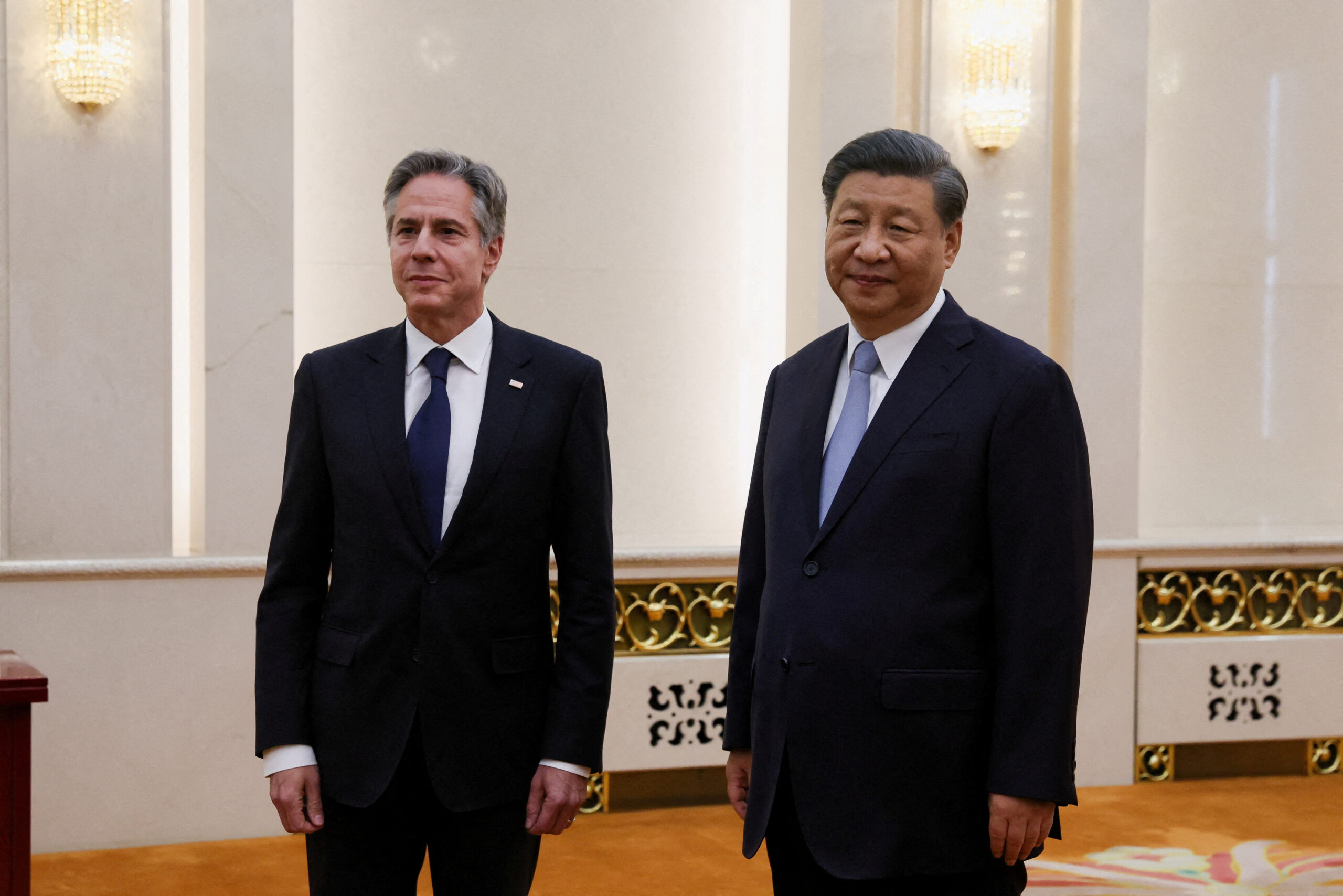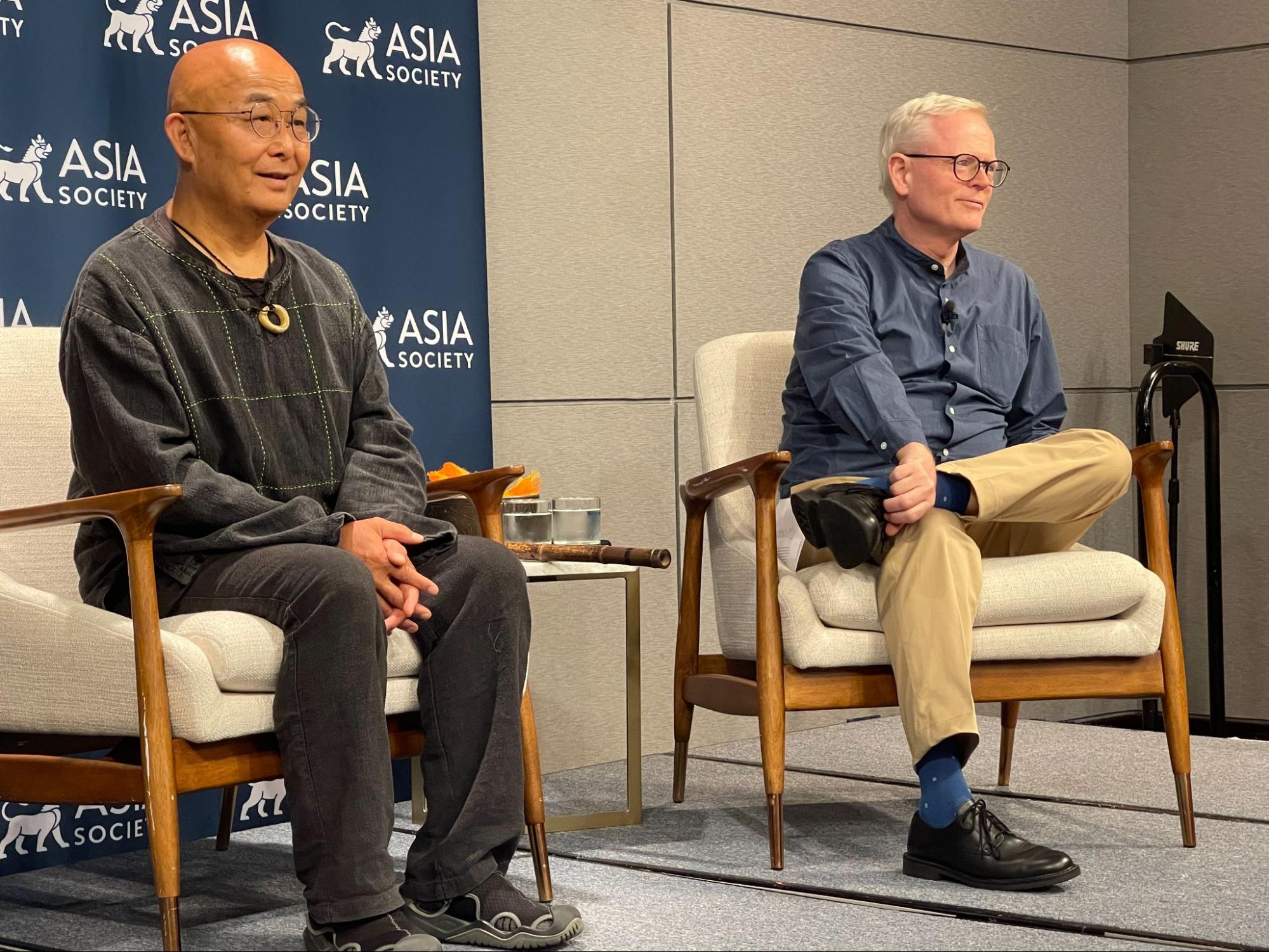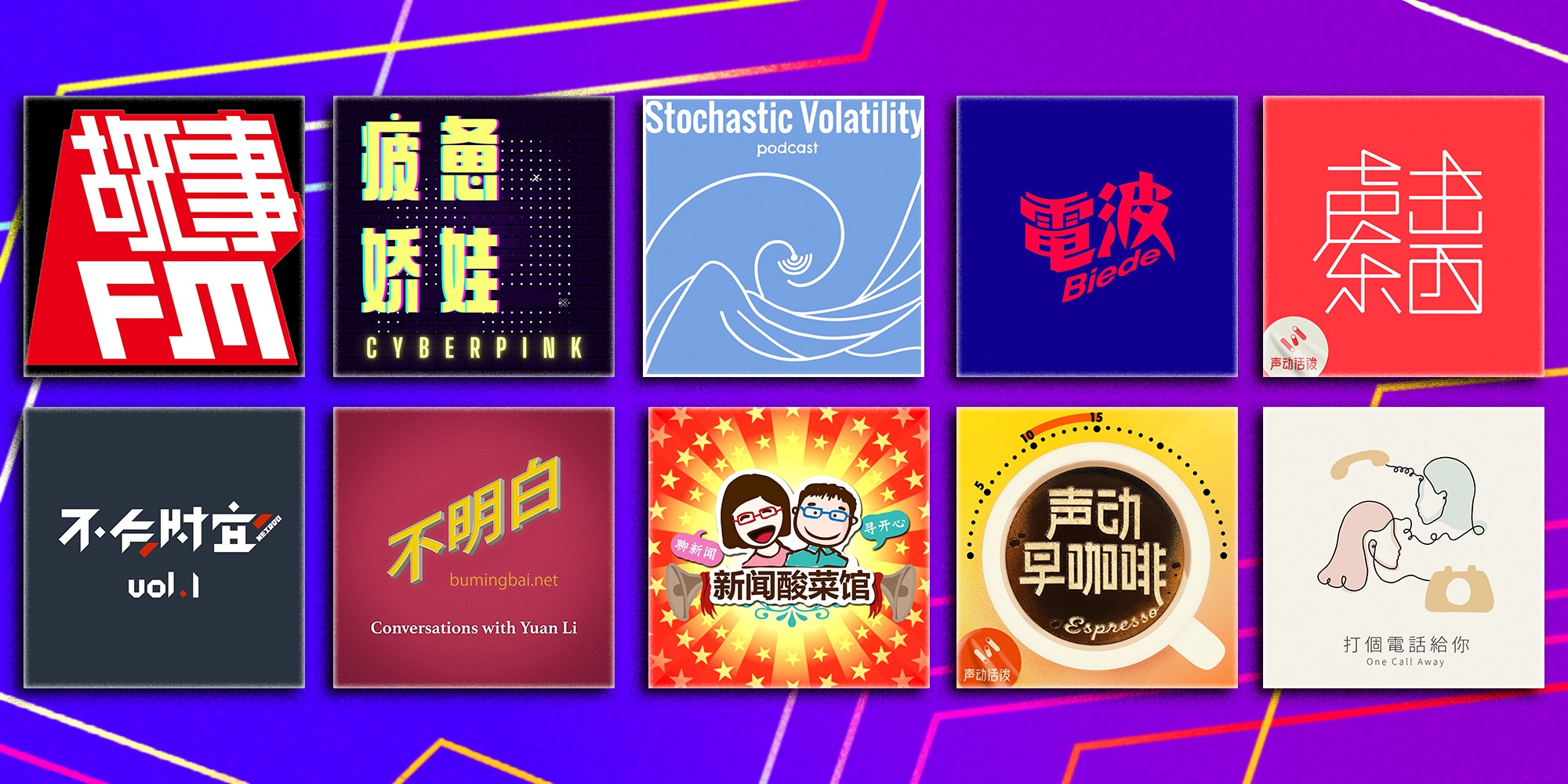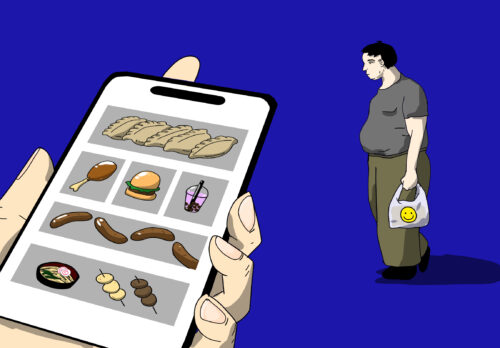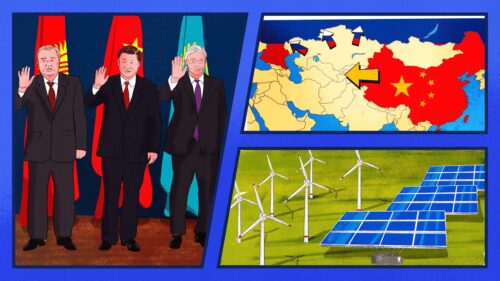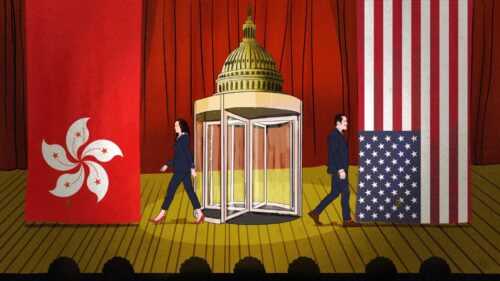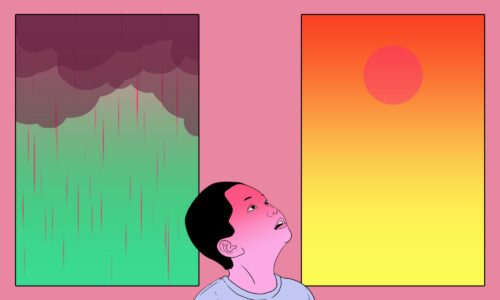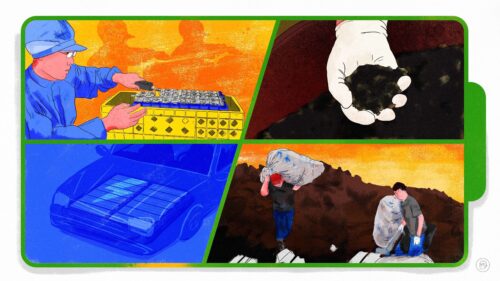Good or bad economic news?
...and Kerry and Xi discuss global warming as China bakes | July 17. 2023
|
| CURRENT AFFAIRS | ||
|
China’s economy showed “good momentum of recovery” in the first half of 2022, says the headline of the latest data dump (English, Chinese) from the National Bureau of Statistics (NBS).
Market reactions and media commentary were somewhat less enthusiastic:
- Bloomberg said “China’s economic recovery lost momentum in the second quarter, putting Beijing’s growth target for the year at risk and adding to concerns about a slowdown in the world economy.”
- “The market reaction was disgruntled,” said Reuters, “with Chinese shares down and the yuan easing,” and the “market hungry for stimulus,” although there is no sign of government plans to significantly juice the economy.
These are the major numbers:
- Gross domestic product (GDP) grew by 6.3% in the second quarter from a year ago, and 5.5% over the first half of the year. These numbers are lower than many had expected. However, NBS spokesperson Fù Línghuī 付凌晖 said China can still achieve its full-year growth target of 5%, which was set in March, despite international geopolitical and economic complexities.
- Youth unemployment in China hit a new record high, with the jobless rate of 16- to 24-year-olds in urban areas rising to 21.3% in June. The general unemployment rate for people in cities was 5.2% in June.
- Retail sales for June rose by 3.1%, slightly lower than expected. The biggest growth in retail was in catering, sports, entertainment, alcohol, and tobacco. Sales of autos, office products, and daily use goods declined in June from a year ago.
- Deflation is a major risk, noted both by official reports on the numbers and foreign media.
How did the entire world become dependent on China for electric cars, from supply chains to manufacturing to car brands? Is there a way for Europe or the United States to reverse this dominance? Join our exclusive members-only webinar to talk to two leading experts on new energy vehicles, Lei Xing and Henry Sanderson
by registering here.
| NEWS BRIEFING | ||
|
Here’s what else you need to know about China today:
U.S. climate envoy John Kerry is in China. He arrived yesterday and stays until July 19 in a bid to revive stalled climate talks after a year-long hiatus, as China battles another summer of extreme weather that has caused widespread destruction and a number of deaths across the country.
Kerry and his Chinese counterpart Xiè Zhènhuá 解振华, who have spoken with one another for over two decades, kicked off their rounds of talks today on a warm note: Both referred to the other as “old friend.”
Even warmer, however, was the temperature at Sanbao township in Xinjiang’s Turpan Depression in China’s arid northwest, which endured temperatures of more than 52ºC (126ºF) on Sunday, state media reported, setting a record for a country that was battling minus 50ºC weather just six months ago.
China and Russia are deepening military cooperation with a series of joint naval drills, as Beijing shows no signs of backing away from its tacit support of Moscow despite its invasion of Ukraine.
A Chinese naval flotilla set sail yesterday to rendezvous with Russian naval and air forces in the Sea of Japan for exercises aimed at “safeguarding the safety of strategic maritime routes,” the Chinese Defense Ministry stated. Less than a week ago on July 11, Russian naval vessels departed from a military port in Wusong, having completed a seven-day “friendly” visit to Shanghai.
China said India should “not let specific issues define the overall relationship” during a meeting on Friday (in Chinese) between China’s top diplomat Wáng Yì 王毅 and India’s External Affairs Minister S. Jaishankar in Jakarta.
India has previously stated that its relationship with China “cannot be normal” until there is peace along their disputed border, the Line of Actual Control (LAC).
A Chinese naval hospital ship arrived in Tarawa, the capital of Kiribati, on July 15 for a seven-day “goodwill visit” to provide humanitarian medical services to locals, the Chinese military said in a statement.
Known as the “Peace Ark,” the vessel is the first institutionalized ocean-going hospital ship independently designed and built by China. It will also pay visits to Tonga, Vanuatu, Solomon Islands, and Timor-Leste — the first time a Chinese naval vessel will visit Kiribati and Solomon Islands — as China courts Pacific Island nations amid an ongoing battle for influence with the U.S.
Taiwan Vice President Lai Ching-te (赖清德 Lài Qīngdé) of the Democratic Progressive Party (DPP) will stop in the U.S. next month on his way to South America, in a visit that will likely stoke brewing tensions with Beijing just months before the island’s presidential election.
Lai, 63, is one of the top three candidates in Taiwan’s 2024 election, along with the Kuomintang’s (KMT) Hou Yu-ih (侯友宜 Hóu Yǒuyí) and Ko Wen-je (柯文哲 Kē Wénzhé) of the Taiwan People’s Party (TPP). Last week, Lai stated that Taiwanese presidents should be allowed to step foot in the White House, but also separately stressed that he “will support the cross-strait status quo” and his “top priorities remain pragmatism and consistency” in an op-ed for the Wall Street Journal on July 4. Beijing registered disapproval of Lai’s plans at the Foreign Ministry’s daily press conference today.
Taiwan’s Defense Ministry last week reported that 16 Chinese warships and 15 aircraft were spotted in waters around Taiwan in a 24-hour period late last week, in what analysts said was the latest sign of an intimidation, which CNN called a record high.
Chinese state media: Xinhua News Agency today leads with a very short piece on Xí Jìnpíng 习近平 meeting with former Philippine President Rodrigo Duterte today at the Diaoyutai State Guesthouse in Beijing (English, Chinese).
The Party paper the People’s Daily’s top story focuses on China quest — led by Xí Jìnpíng 习近平 of course — to build an “ecological civilization,” and to realize the “harmonious coexistence of humanity and nature,” which is linked to another Xi catchphrase, “Chinese-style modernization.”
Another article on the front page touts the success of a project to divert water from the Han River to the Wei River, which will supply the city of Xi’an.
| BOOKS AND POLITICS | ||
|
The Sichuan-born writer and street musician who spent four years in prison for “Massacre,” his poem about Tiananmen Square in 1989, talked to fellow author Ian Johnson about exile in Germany at an event in New York last week.
- Liao shared his stories of his time in prison, from sharing a cell with gang members to sleeping between two people on death row, and how it inspired his book Interviews with the Lower Strata of Chinese Society.
- Liao also talked about his views on the future of China and on questions of identity.
Here is a lightly-edited transcript of the conversation.
| SOCIETY AND CULTURE | ||
|
Andrew Methven, who runs a newsletter about learning Chinese, is always looking for ways to improve his conversational Chinese. One of his preferred methods? Listening to podcasts, and here are his 10 favorites.
- They include interview shows, bite-sized news programs, and simply conversations between hosts.
- The shows in the list all relate to contemporary life, and none are state-owned or sponsored. All are available on Apple and Spotify, as well as major Chinese podcasting platforms, such as Ximalaya.
No. 1 on the list is Story FM, hosted by Kòu Àizhé 寇爱哲, whom we’ve previously profiled.
- Other notables include Bumingbai, run by New York Times journalist Li Yuan (袁莉 Yuán Lì).
Click through for the full list.
| MORE FROM THE CHINA PROJECT | |||
|
| FROM THE NEWSBASE | |
|
</table



